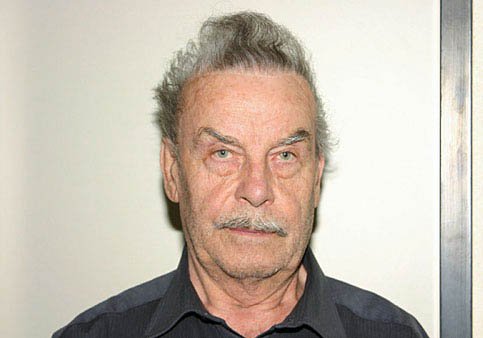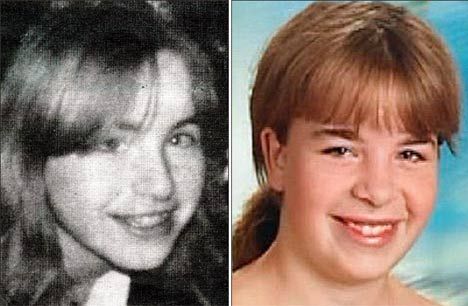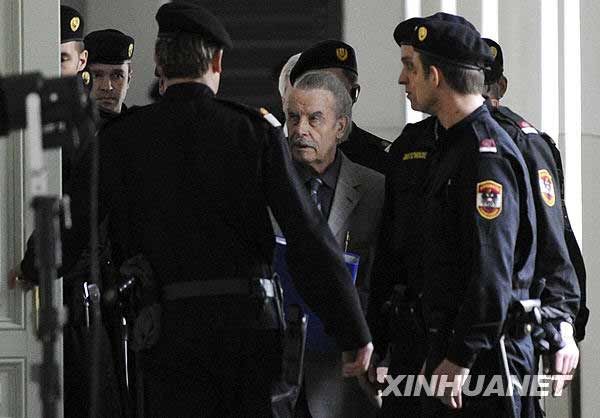(单词翻译:单击)
A court psychiatrist yesterday described how Josef Fritzl had locked up his daughter as a way of compensating for a loveless childhood as she detailed his troubled relationship with his mother.
昨日,一位法庭精神病学家详述了Josef Fritzl与其母亲的不良关系,并称其禁锢女儿的行为乃是出于对无爱童年的一种补偿。
Adelheid Kastner told the court in St Polten that Fritzl was a dangerous man and recommended his transfer to a psychiatric institute for intensive therapy for a serious personality disorder. She said if it was left untreated even at his advanced age, Fritzl could go on to commit other crimes so great was his "need to dominate and control other people".
Adelheid Kastner告诉位于St Polten的法庭Fritzl是个危险的男人,并建议将他转到一家精神病机构接受对严重人格障碍的密集治疗。她说如果放任不管,即使在他这样的高龄,Fritzl仍会继续犯下其他罪行,因为他有强烈的需要去“支配和控制其他人”。
Kastner said Fritzl had developed strategies to learn to cope with life, including "pushing his feelings into the cellar of his soul". She said there was "much of the volcano about him," explaining that violent sex had provided the main outlet for his pent-up feelings. She said he had told her: "I was born to rape".
Kastner说Fritzl发展出了一些生活应对策略,包括“将情感推入灵魂的地窖里”。她说“他有强烈的情绪火山”,并解释说暴力性行为提供了他被压抑情绪的主要出口。她说他曾告诉她:“我就是为强暴而生的。”
In an hour-long testimony to the court, based on extensive interviews she carried out with Fritzl last year, Kastner said that his behaviour had its roots in his troubled childhood, describing a mother who did not love him, who left him to cry when he was in pain, who regularly beat him and left him on his own for hours at a time. "Herr Fritzl spent most of his childhood in a severe state of anxiety," she said.
基于她去年对Fritzl进行的密集访谈,Kastner在一小时的法庭证词中说明了他的行为根源于混乱的童年,她描述了一个不爱他的母亲,在他疼痛时留下哭泣的他离开,经常打他,不时丢下他数小时独自一人。“Herr Fritzl的童年几乎都是在强烈的焦虑中度过的,”她说。
She described how his mother Maria, who herself had been fostered as a child, had had him "solely in order to prove to the world that she was not infertile" following a marriage which broke up because it produced no children.
她描述了他的母亲Maria如何在一段因无子而破裂的婚姻后生了他,“纯粹是为了向全世界证明她可以生孩子”。
"Herr Fritzl was a 'proof child', an 'alibi child'," she said, adding that this "was his only function as a child". "As a consequence he was a burden to her, something she was forced to look after". She said that Fritzl, now 73, struggled throughout his childhood to form a relationship with his mother but that "it was impossible to build up any sort of bond of trust with her".
“Herr Fritzl是一个被作为‘证据’的孩子”,她说,并补充说这是“他作为一个孩子唯一的功能”。“结果他对她而言是个负担,是她被迫要去照顾的某个东西。 ”她说,现年73岁的Fritzl童年时为了和母亲建立关系百般努力,但是“和她建立信任连结是不可能的”。
The fear he felt by her constant absences was never more intense than during the second world war bombing raids on their home town of Amstetten. She refused to take refuge in the air raid shelter near to the family home, insisting on staying in the house and sending her son into the underground shelter instead. "As a result he suffered from an overwhelming sense of anxiety, not knowing when the air raid was over whether or not the only person in the world to whom he had any relationship, would still be alive," she said. "It's the type of fear that over time has a huge impact on a person".
她的持续离开使他感到恐惧,这种恐惧在第二次世界大战中他们的家乡Amstetten 遭受空袭时达到了顶点。她拒绝去家附近的防空洞避难,坚持待在房子里并把儿子打发到地下室。“结果他经历了压倒性的焦虑,不知道轰炸何时会结束,不知道这世界上唯一与他有些联系的人是否还活着,”她说。“这种恐惧随着时间流逝对一个人有巨大的影响。”
She described how his mother ignored his screams when, as a young boy he suffered from the extremely painful, but easily treatable condition of phimosis, or a tight foreskin. Only the intervention of a neighbour prompted her to take him to see a doctor.
她描述了当他作为一个年幼男孩遭受极其疼痛但很容易治疗的包茎问题时,他母亲如何忽略了他的尖叫呼痛。在一个邻居的干预下她才带他去看了医生。
Fritzl listened attentively as Kastner delivered the in-depth psychiatric analysis of his character to the court. But at times he appeared nervous, twisting his fingers and his left foot, while glancing at the floor.
当Kastner向法庭陈述对他人格的深层精神病学分析时,Fritzl一直专注地倾听,但时不时地显得神经紧张,扭绞着手指和左脚,同时盯着地板。
His decision to lock up his daughter stemmed from a need to compensate for the years during which his mother dominated him. "He developed an overwhelming desire to exert power - to dominate, control and possess another person. These were fantasies that grew and grew and which he managed to realise".
他将女儿禁锢起来的决定源于一种需要,去补偿他母亲对他多年的支配。“他发展出了压倒性的权力欲望——去支配、控制和占有另一个人。幻想一直在加剧,而他设法实现了这些幻想。”
She said one reason as to why he chose Elisabeth, his fourth of seven children, was because of her resistance. "If you conquer someone you consider strong and stubborn, the effect is all the more gratifying". He told her he had chosen Elisabeth "because she was most like me, as strong as me, as stubborn as me".
她说他选择伊丽莎白,他七个孩子中的第四个,原因之一就是她的抵抗。“如果你征服某个你认为强壮且顽固的人,效果就更令人满意。”他告诉她,他选择伊丽莎白“因为她最像我,像我一样强壮,一样顽固。”
She said that the more incestuous children he had with her, the more powerful he felt. "The more children, the more power he had over his victim". She said Fritzl was able to separate his two lives - the family he kept downstairs, and his official upstairs family.
她说,他和她生下越多乱伦的孩子,他就越感到自己强大有力。“孩子越多,他对受害者的权力也越大”。她说Fritzl能够分离他的两种生活——楼下的家庭,以及楼上的合法家庭。
"When I asked him how he was able to lead a double life, he said it was very simple. 'As soon as I went upstairs the downstairs family didn't exist any more'." But he told her that when he woke up in the mornings he was flooded with feelings of guilt, "realising that he was breaking every rule in the book".
“当我问他怎么能过着双重生活时,他说那很简单。‘只要我一上楼,楼下的家庭就再也不存在了’。”但他告诉她,早晨醒来时他会被内疚的感觉淹没,“意识到自己正在破坏书中的每条戒律”。






